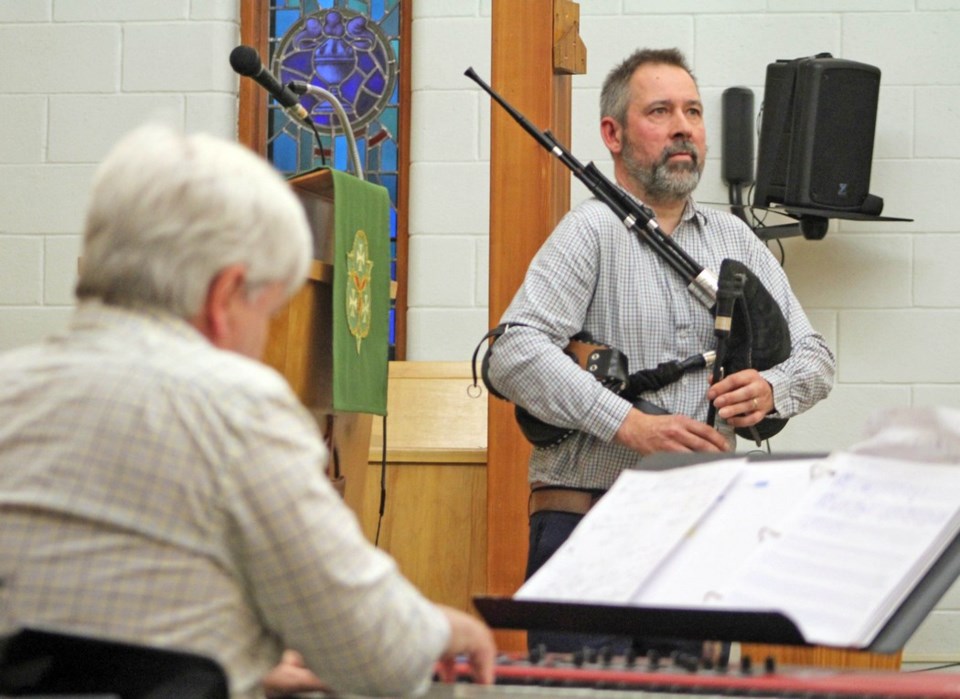Ian Kinnear’s path to playing in Flin Flon was a long and winding one.
Local luthier Alistair Callegari has roots in the same small village where Kinnear is from - Edzell, Scotland. When Mark Kolt took a trip to the United Kingdom, he got a chance to play with Kinnear, who makes Scottish smallpipes. The chance for Kinnear to return the favour couldn’t have come at a more opportune time.
Kinnear performed for a crowd of around 75 people Sept. 25 at the First United Lutheran Church to kick off Culture Days events.
“I did a concert with Mark [Kolt] at the local church, he wrote a piece for the organ that we played together,” Kinnear said after the concert.
“[Mark and Crystal] said, ‘We'll have to get you to Flin Flon.’ I thought it's unlikely but they worked and I got an email in January saying, ‘We can make this work - do you fancy doing it?’ There's been a lot of coincidences.”
Kinnear took concert goers on a musical trip around Europe, performing songs on smallpipes accompanied by Mark Kolt on piano and keyboard. The smallpipes, unlike the more well known highland pipes, are played using a bellows, a pump that provides steady air.
“You really don't think of the bellows because it's kind of second nature,” Kinnear said.
“So you’re thinking about the melody, where the tunes going. When you're playing with someone else you’re working together, concentrating on what they're doing as well.”
The smallpipes were first brought to Scotland in the 15th century, before the highland pipes were even first played in the area. Unlike most instruments, there isn’t a continuous line of play since its introduction. The smallpipes stopped being played at the end of the 19th century and were picked up again in the mid-1980s.
Kinnear’s path to playing the smallpipes was similar to the reason they were revived.
“I was a student in Edinburgh and started going to pub sessions. I heard fiddles and banjos and guitars all playing together, in a jam setting,” he said.
“As a piper, I really wanted to integrate with that. I was looking for an instrument that I could use to integrate because I knew the tunes they were playing.”
Kinnear started making his own smallpipes in 1993, combining woodworking experience with other instrument construction.
“After I finished studying, I was working in a music shop,” he said.
“I could see there was a demand [for smallpipes]... When I made a set, most of my friends were pipers at that time. My friends would make a sale for me. I could see the potential.”
Kinnear spent five days in Toronto before heading to Winnipeg and driving up to Flin Flon. He detailed his smallpipe construction techniques during an artist’s talk at NorVA Centre to close out his participation during Culture Days.




